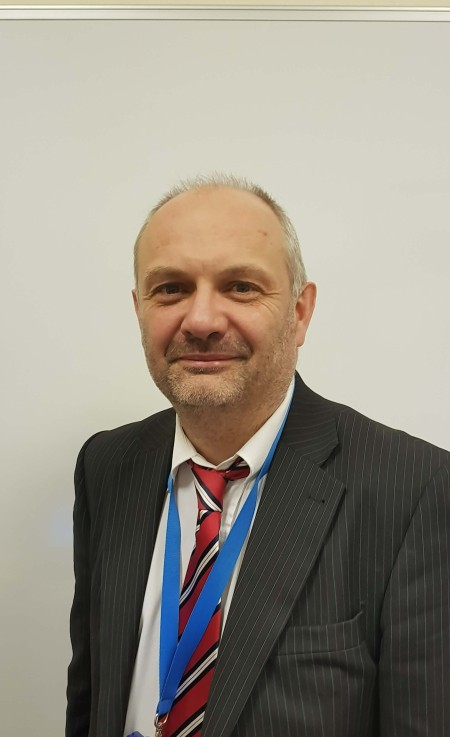
The event began with a keynote speech from Sir Mike Richards, author of the renowned “Diagnostics; Recovery and Renewal” report, which was commissioned in response to recommendations in the NHS Long-Term Plan, outlining a new diagnostic model for services.
Sir Mike gave his thoughts on how we could deliver the vision for England’s diagnostic sector to reshape the delivery of care and improve wider health and care outcomes. Sir Mike described how institutions, the public and private sectors, and academia, need to collaborate in delivering a new approach to diagnostic delivery.
This led to a panel discussion where Sir Mike was joined by Professor Carole Longson, Life Science Adviser, National Institute for Health and Care Excellence and Dr Katharine Halliday, President, Royal College of Radiologists. The discussion focussed on how learning from the NHS response to the Covid-19 pandemic will help shape delivering the vision for diagnostics. We heard how an evaluation of how Covid-19 testing roll-out can be used as a blueprint to expand capacity for testing nationwide; explored the key learnings from Lighthouse lab infrastructure delivery developments; and discussed how to use community assets to redefine the diagnostic model. The possibility of home testing is an exciting vision to help address diagnostics workforce challenges in the face of increasing demand. Kath particularly emphasised the workforce challenges and the expectation by 2025 there will be a vacancy rate of 39% of consultant posts in England.
The meeting then split into breakout sessions, and I gave a talk on how our GM Imaging Network single instance PACS system can be used to help tackle the health inequalities we have in the conurbation, specifically improving access to diagnostic services and the possibility of reporting across organisational boundaries to smooth reporting times. I was joined in this session by Professor Erika Denton, Medical Director, Honorary Professor of Radiology, Norfolk & Norwich University Hospital who presented a case study of effective community engagement to build trust and strengthen community diagnosis across harder-to-reach groups.
The afternoon had more interesting sessions starting with “Scaling up – developing workforce capacity and capability” by Professor Jo Martin CBE, Professor of Pathology, Queen Mary University of London, and National Specialty Advisor for Pathology NHS England and Improvement, The Royal London Hospital. This was followed by “Evolving existing pathways to enable point-of-care testing and testing at home”; a series of three presentations by Professor Jonathan Cooke, Visiting Professor, NIHR London In Vitro Diagnostics Co-operative; Haval Ozgun, Network Lead, and Point-of-Care Testing Manager, NHS South West London Pathology; and Mr Ian Smith, Screening and Point of Care Testing Manager, Clinical Biochemistry Department, Oxford University Hospitals NHS Foundation Trust.
The third sessions “Collaborating on diagnostic delivery in a complex landscape” was delivered by Alan Dawson, Director of Strategy and Planning, Wye Valley NHS Trust;
Andrew Lennox, Group CEO, Medical Imaging Partnership; and Jeevan Gunaratnam, Strategic Accounts and Independent Sector Lead, Philips
The day concluded with two final sessions; “What could game-changing innovation mean for the future of diagnostic delivery?” which with a number of test pilots taking place nationwide, proposed there is significant opportunity for innovation to reshape the future of diagnostics. In this session, we heard of the initial findings of pioneering work and what innovation means for the future shape of diagnostics from Dr Lennard YW Lee, Academic Clinical Lecturer and Medical Oncology Consultant, Innovation Program Lead (MCED-GRAIL), NHS England Cancer Program, University of Oxford
The final session was a general debate on the future of diagnostics, taking a forward look at the evolving diagnostics landscape discussing amongst other solutions, the role integrated care systems can play in leading and speeding up adoption of innovation.
These were my key “take home” messages from a fascinating day:
- We need to give colleagues the TIME for transformation.
- We need MORE STAFF in radiology, and if we are to fully utilise digital innovations, we need more people with IT skills too.
- Online booking for patient appointments is needed in radiology if we are to reduce ‘Do Not Attend’ rates.
- Patients (home testing) is going to be a valuable component of addressing workforce and demand challenges.
- Leadership and collaboration are essential.
- We will need to work with industry partners. Its in everyone’s interest.
For more details on this event visit Meeting demand | The King's Fund (kingsfund.org.uk)
